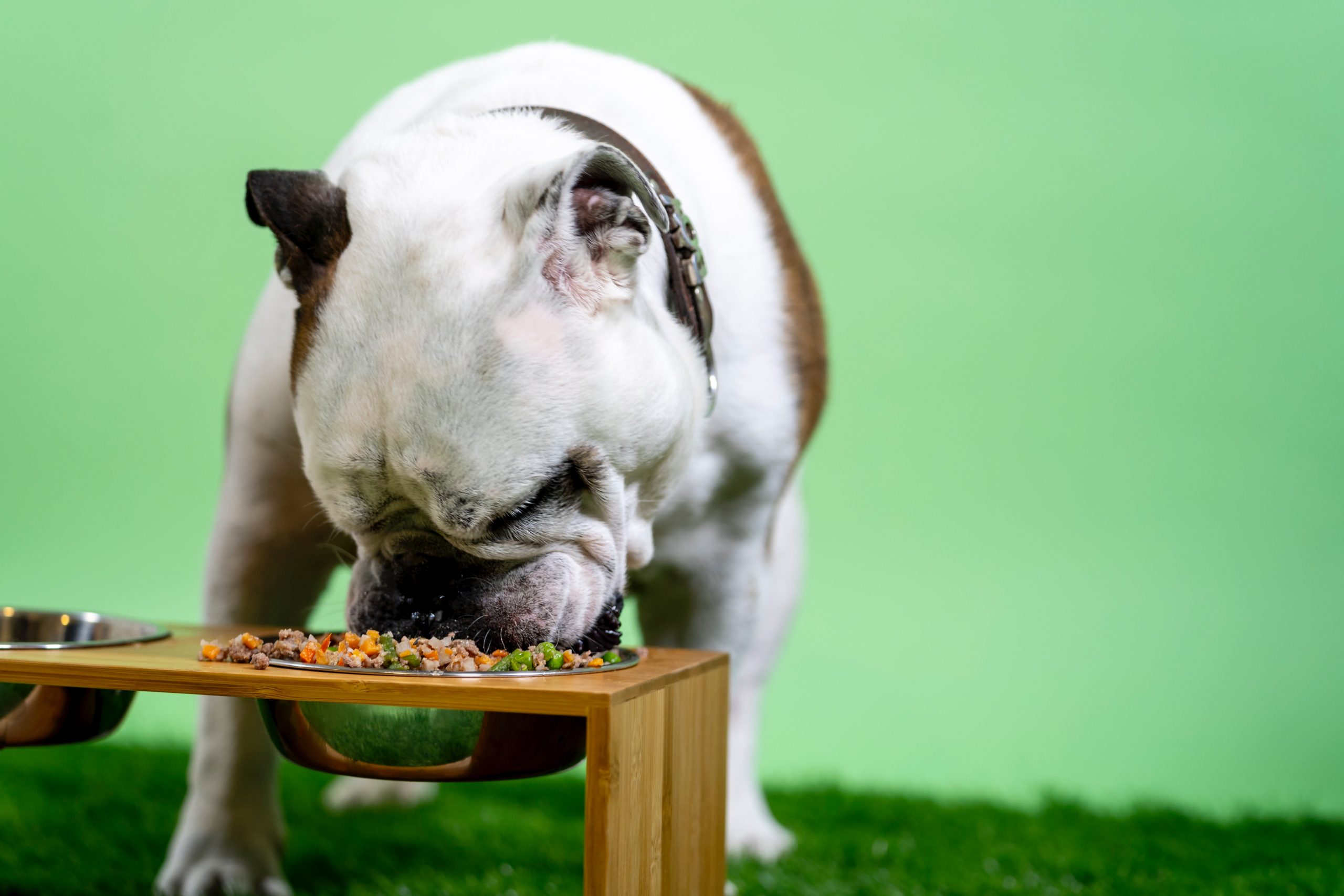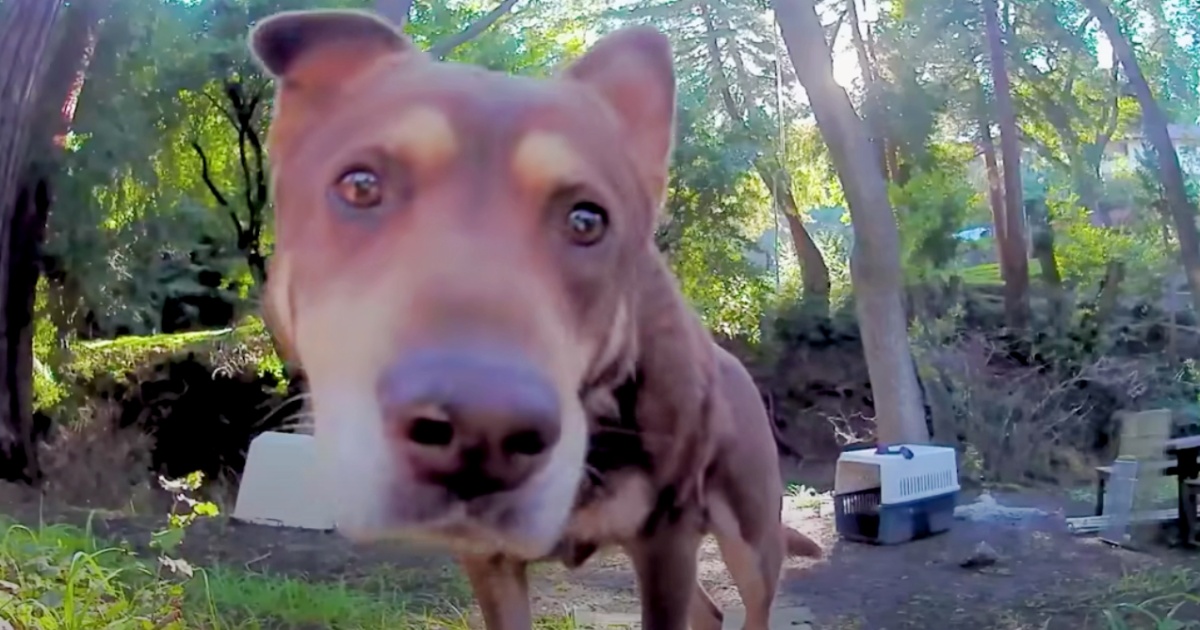🐶💡 Can dogs eat prunes?
You might think they’re a healthy fruit snack… but one bite could send your dog straight to the vet.
If you’ve ever dropped a dried plum and your dog rushed over to sniff it, you might have wondered if it’s safe for them. It’s common to think that fruits good for us are also good for our pets. Prunes are just dried plums, full of sugar and fiber, and people often eat them to help with constipation. But what works for us doesn’t always work for dogs. Here, I’ll go over what prunes are, why they aren’t a good choice for dogs, what to do if your dog eats one, and some better treat options.
What Exactly Are Prunes?
Prunes start as plums that have been pitted and dehydrated. The drying process concentrates the natural sugars and fiber, creating an intense sweetness that makes them a popular snack for humans. According to the MasterClass pet guide, prunes have a high sugar content and fiber that acts as a laxative for people. This combination is why many people reach for prunes when they need help with bowel movements. While this dried fruit is packed with antioxidants, potassium, dietary fiber and vitamin K for humans, it offers few nutritional benefits to dogs.
Prunes are much sweeter and more concentrated than fresh plums, so they have more calories in each bite. Even just one or two can give a small dog a lot of sugar. Some store-bought prunes also have extra sugar or preservatives added, which makes them even riskier for dogs.
Can Dogs Eat Prunes?
Technically, prunes are not toxic to dogs. A dog that grabs a single prune off the floor will likely be fine. However, nutrition experts agree that dogs should not eat prunes intentionally. The sugar, fiber and potential for choking make them a poor snack choice. As the Dog People blog explains, both plums and prunes are high in sugar and fiber, which can shock a dog’s digestive system. The veterinary site Vety adds that prunes are even higher in sugar than fresh plums and should not be part of a dog’s regular diet.
Digestive Upset
Dogs digest food differently than we do. Their bodies are better at handling meat and fat, not lots of fruit. Prunes have a lot of sugar and fiber, which can upset a dog’s stomach and cause diarrhea, vomiting, cramps, or bloating. Too much fiber pulls water into the gut, which can lead to loose stools and dehydration in dogs, even though it helps people with constipation.
High Sugar Content
One prune has about 3 to 4 grams of sugar. Giving your dog a few prunes can add up to more sugar than they should have in a whole day. Too much sugar can cause weight gain, dental problems, and even diabetes. Dogs that are already overweight or have trouble with blood sugar should not have sugary treats. Even healthy dogs can get tired and hungry after their blood sugar goes up and then drops.
Choking Hazard and Gastrointestinal Blockage
Prunes feel soft, but they are sticky and can stick together. A big piece can get caught in a dog’s throat, especially in small breeds. Even if your dog swallows it, the sticky lump can move slowly through their digestive system and cause a blockage. This can lead to pain, vomiting, and not wanting to eat.
Prune Pits and Cyanide Risk
Most packaged prunes are pitted, but not all. A prune with a pit poses additional dangers. Plum pits contain amygdalin, a compound that converts to cyanide when metabolized. The Vety article notes that the stone, stems and leaves contain cyanogenic compounds that are toxic to dogs. Even though the pit in prunes is often removed, some varieties may still contain pits or fragments. MasterClass warns that consuming prune pits in large amounts could cause cyanide poisoning, though cases are rare because the pits are usually discarded. Pit fragments are also a choking hazard and can cause intestinal blockage.
Added Preservatives and Sweeteners
Some packaged prunes have extra preservatives or sweeteners. Dogs are very sensitive to things like xylitol, which is an artificial sweetener that is poisonous to them, even in tiny amounts. Always read the label, and if you are not sure what’s in the prunes, keep them away from your dog.
Prunes vs. Plums: What’s the Difference?
Prunes are just plums that have been dried out. Drying them takes out the water and makes the sugar and fiber much stronger. Fresh plum flesh is safe for dogs in small pieces if you remove the pit, stem, and leaves. But prunes are much more concentrated, so they are not a good choice for dogs.
If you want to give your dog a taste of fresh plum, only offer a small piece of the flesh with the pit taken out. Watch your dog for any stomach problems. Plums still have sugar, so only give them as an occasional treat. Never give your dog any leaves, stems, or roots from the plant, since these are not safe.
Potential Benefits (and Why They Don’t Outweigh the Risks)
Prunes are often praised for their health benefits in humans. They’re high in antioxidants, potassium and vitamin K, which support heart and bone health. They are also famous for relieving constipation. However, these benefits aren’t significant for dogs. MasterClass notes that prunes offer negligible benefits to a dog’s diet and the potential health problems outweigh any advantages. In other words, the risks of digestive upset, choking, sugar overload and cyanide exposure far exceed any minor nutrient gain.
Myth: Prunes Relieve Canine Constipation
Many owners assume that because prunes help humans with constipation, they will help dogs as well. This isn’t the case. Dogs react to dietary fiber differently. While fiber can support healthy digestion, too much too quickly causes diarrhea and dehydration. The A Z Animals article advises against using prunes to treat canine constipation, noting that they are difficult for dogs to digest due to their high sugar and fiber content. For dogs experiencing occasional constipation, safer remedies exist (see the section below on healthy solutions).
Signs Your Dog Ate Too Many Prunes
If a dog sneaks a prune or two, mild symptoms may occur. But if they eat several prunes or swallow one with a pit, more serious issues may develop. Watch for:
- Diarrhea and vomiting: The extra sugar and fiber irritate the stomach and intestines. Diarrhea may contain mucus or blood if irritation is severe.
- Bloating and gas: Fermentation of sugars produces gas, causing abdominal discomfort and distention.
- Loss of appetite: Intestinal discomfort can make a dog refuse food.
- Signs of cyanide poisoning: If a dog ingests pits, symptoms may include dilated pupils, difficulty breathing, bright red gums and seizures.
- Dehydration: Persistent diarrhea and vomiting can cause dry gums and excessive panting.
If your dog only has mild symptoms, they usually get better in a day. But if the problems last, call your vet. If your dog ate a prune with a pit, contact your vet right away. The pit can block their insides or cause poisoning, and both need quick treatment.
First Aid: What to Do If Your Dog Eats a Prune
- Stay calm and figure out how many prunes your dog ate and if any pits were in them. If it was just one or two prunes without pits, your dog will probably be okay.
- Remove any remaining prunes. Clean up any spilled prunes or prune juice to prevent further ingestion.
- Watch your dog for signs like vomiting, diarrhea, bloating, or acting tired. If you see these, do not give food for 12 hours unless your vet says otherwise, and offer small sips of water to help prevent dehydration.
- Call your vet. Even if your dog looks fine, it’s a good idea to check with your vet. If your dog ate a pit, your vet might tell you to come in or try to make your dog vomit. Sometimes, vets use activated charcoal to soak up toxins or may need to do surgery if there is a blockage.
- Do not try to treat your dog at home with laxatives or medicines meant for people. These can be harmful to dogs. Always listen to your vet’s advice.
Safer Alternatives for Your Dog
Dogs enjoy sweet snacks, and you can give them safe fruits in small amounts. The fruits below have vitamins and fiber but not as much sugar as prunes. Always take out seeds, cores, and pits, and cut the fruit into small pieces to help prevent choking.
- Apples (without seeds or core): Provide fiber and vitamins A and C. The seeds contain traces of cyanide, so remove them before feeding.
- Blueberries: Rich in antioxidants and low in calories, these berries make excellent training treats.
- Bananas: High in potassium and easy to digest. Use in small amounts because they are also sugary.
- Watermelon (seedless): Low in calories and high in water, watermelon helps hydrate dogs on hot days.
- Pineapple (in moderation): Contains bromelain, an enzyme that aids digestion; however, serve in small amounts to avoid sugar overload.
- Cooked, mashed pumpkin: A favorite vet-recommended remedy for mild constipation.
Pumpkin is high in soluble fiber and water, which regulate digestion. The Dog People blog suggests pumpkin as a safer option than prunes for relieving constipation.
When you try a new food with your dog, start with a small amount and watch for any bad reactions. Fruits should only be given as treats once in a while, not every day. Dogs get most of what they need from their regular dog food.
Preventing Prune Mishaps
It’s easier to stop problems before they start. Here are some tips to keep prunes away from your dog:
- Store dried fruit securely. Keep prunes and other dried fruit in sealed containers in a cupboard your dog cannot access.
- Dispose of pits promptly. When you eat fresh plums, throw the pits away in a trash can with a secure lid.
- Teach the “leave it” command. Training your dog to ignore dropped food helps prevent accidental ingestions.
- Clean up fallen fruit in the yard. If you have plum trees, pick up fallen fruit regularly and consider fencing off the area to keep your dog away.
- Watch your dog outdoors. Be vigilant on walks, especially near fruit trees or picnic areas where dried fruits might have been discarded.
Healthy Solutions for Canine Constipation
Constipation can make dogs feel bad and worry their owners. Instead of giving prunes, try these safe tips from vets:
- Increase water intake. Adequate hydration softens stools. Offer fresh water at all times and consider adding low-sodium broth to encourage drinking.
- Exercise. Regular walks and play stimulate bowel movements by activating the digestive tract.
- Add fiber gradually. Plain canned pumpkin, cooked sweet potato or green beans can provide gentle fiber. Start with a teaspoon for small dogs or a tablespoon for large dogs and adjust based on stool consistency. Always monitor to avoid diarrhea.
- Check diet quality. Ensure your dog is eating a balanced food with adequate fiber. Sudden changes in diet can cause constipation; when switching foods, transition slowly over several days.
- Consult your veterinarian. Chronic constipation may indicate an underlying health issue like dehydration, intestinal obstruction or metabolic disease.
Your vet can check your dog and suggest safe ways to help.
Conclusion
Prunes might be good for people, but they are not right for dogs. They have too much sugar and fiber, can upset your dog’s stomach, and can even cause choking. Eating one prune is not likely to hurt your dog, but eating them often can cause diarrhea, vomiting, bloating, or even poisoning if pits are eaten. The risks are much greater than any possible benefit.
If you want to give your dog fruit, pick safer choices like apples, blueberries, or watermelon, and always take out seeds and pits. For constipation, use plain canned pumpkin or ask your vet for advice. Store dried fruits where your dog cannot get them, teach your dog not to eat dropped food, and clean up any fruit in your yard. Knowing why prunes are not safe and choosing better treats will help keep your dog happy and healthy.
FAQs.
Can dogs eat prunes safely?
It’s best not to give prunes to your dog. While the fruit itself is not toxic, the sugar and fiber can sometimes upset a dog’s stomach and may lead to vomiting or diarrhea. The pits are especially risky because they could cause choking or become lodged in the digestive tract. For these reasons, prunes are not a good choice for a treat.
Are prunes toxic or poisonous to dogs?
The soft part of a prune is safe for dogs to eat. But the pit, stem, and leaves have small amounts of cyanide, which is poisonous. If a dog eats a lot of pits, it could get cyanide poisoning, which is very dangerous and needs quick medical help.
What happens if a dog eats a prune?
If your dog happens to eat a prune without the pit, you may notice some mild stomach upset, such as gas or diarrhea, due to the sugar and fiber. However, if the prune still has its pit, there is a risk of choking or a blockage in the intestines, so it’s a good idea to contact your vet promptly if that happens.
Can a single prune hurt a dog?
Yes, even just one prune can be a problem. For smaller dogs, it could be a choking hazard. If the prune still has its pit, it could block the intestines in any dog, no matter the size. It’s safest not to give your dog prunes at all.
Can prunes kill a dog?
Yes, in rare but serious cases, prunes can be deadly for dogs. Choking, a blocked intestine, or cyanide poisoning from too many pits can all be life-threatening. If you think your dog is in trouble after eating prunes, call your vet right away.
How many prunes can a dog eat?
The safest amount of prunes for dogs is none at all. Because of the risks, there isn’t a safe number to offer. It’s best to skip prunes as a treat or snack for your dog.
Can dogs eat prunes every day?
No, dogs should not eat prunes every day. Too much sugar can cause weight gain, dental problems, and even diabetes. The extra fiber can also upset your dog’s stomach and cause ongoing diarrhea. Prunes just aren’t a good daily snack for dogs.
What if my dog ate a whole bag of prunes?
If your dog managed to eat a whole bag of prunes, call your vet right away. Eating that many can cause serious vomiting and diarrhea, which can lead to dehydration. There’s also a big risk of a dangerous blockage in the intestines.




















 English (US) ·
English (US) ·